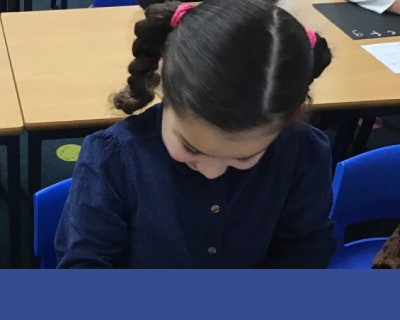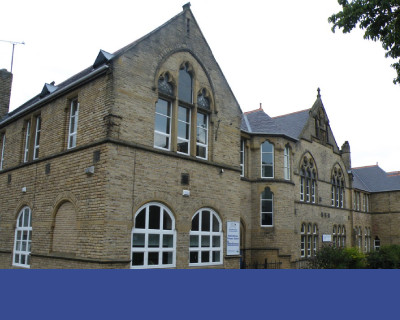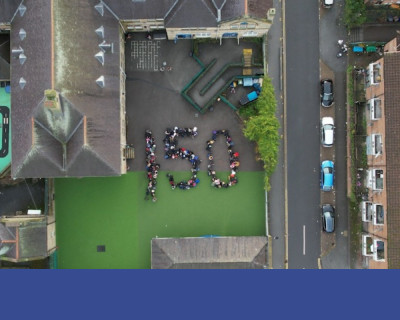English
Vision
At Netherthorpe Primary School we develop the skills and knowledge that will enable our children to communicate effectively and creatively through spoken and written language and equip them with the skills to become lifelong learners. We acknowledge and understand the links between children’s reading and their writing. We believe that children’s reading experiences link to their progress in writing and by picking the right literature we support and enhance children’s developing skills as writers in a meaningful and effective way. English is at the heart of all children’s learning. It enables children both to communicate with others effectively for a variety of purposes and to examine their own and others’ experiences, feelings and ideas, giving these order and meaning.
Speaking and Listening
The four strands of Speaking and Listening (Speaking, Listening, Group Discussion and Interaction, Drama) are used throughout the whole curriculum. Interactive teaching strategies are used to engage all pupils in order to raise standards in reading and writing. Children are encouraged to develop effective communication skills in readiness for later life and all staff model clear and effective communication skills themselves. Children are given regular opportunities to talk about their learning in all subjects and are given regular opportunities to read their work aloud; in class and in more formal situations (class assemblies). This also gives openings for evaluation amongst peers.
Reading
At Netherthorpe Primary School we share a real passion for reading and a love of books. We know that the development of reading skills, along with speaking and listening skills, is absolutely crucial to the progress that children make across the curriculum and we are determined to enable our children to become confident, enthusiastic and effective readers. We have high expectations for our children and encourage them to approach books actively and with enthusiasm, expecting books to make sense and developing an armoury of strategies to help them not only decode but also understand what they are reading.
As readers ourselves, we have a common goal. We want all of our children to have a real love of books. We want every child to be desperate to pick up a book and be able to lose him or herself in it; we want our children to open their minds to a world of imagination and to feel the awe and wonder of discovering new facts and information; we want them to explore emotions, experience drama and make sense of their changing world. Becoming confident, proficient readers allows and enables our children to do this.
Curriculum Aims
- Encourage all children, of all levels and abilities to develop a love of reading.
- Foster an interest in words and their meanings and to gain an appreciation and love of books from a variety of genres.
- Enable children to find books interesting, to read with enjoyment and to evaluate and justify their preferences.
- Enable our children to read confidently, fluently, accurately and with understanding.
- Employ a full range of reading cues- phonic, graphic, syntactic, and contextual- to allow the children monitor, correct and make sense of their own reading.
- Develop a suitable technical vocabulary through which children may discuss the understanding of their reading.
- Develop reading skills in tandem with those of writing, so that the children may thrive in society as literate readers for life.
- Develop and create a wide range of reading opportunities across the curriculum, to make reading exciting, meaningful and relevant.
- Use books confidently and accurately in order to find out about the world and develop deeper understanding.
- Celebrate the gift of reading and appreciate the rich variety of books, stories and texts we have in school, in libraries, online and at home.
Writing
We want our pupils to love writing and enjoy the opportunities for creativity and self-expression that it allows. We also understand that the ability to write effectively, fluently and accurately is a key life skill which enables our pupils to develop ideas, communicate with others and access other areas of the curriculum. Ultimately, confidence in writing is crucial in allowing pupils to reach their full potential and broaden their horizons throughout their lives.
Learning to write is a complex process which requires a command of sentence and text structure, grammar and punctuation, and an ability to edit and evaluate both one’s own and others’ writing. Learning to write well is preceded by a knowledge of how spoken language translates to the written word and an understanding of the written word through reading. It also requires an awareness of purpose and audience across different genres, as well as competency in spelling and handwriting.
Curriculum Aims
- Understand the role reading plays in developing writers and the value of being immersed in high quality literature
- Children have experience of a breadth of texts including those that are visual and digital
- Provide a range of meaningful opportunities to write for real purposes and audiences and to respond to writing as a reader
- Develop an understanding of the craft of writing by engaging meaningfully with professional authors and their processes
- Understand and model the craft and process of writing authentically Support children to identify as writers and to develop their own authentic voice
- Give children time and space to develop their own ideas in writing
- Use creative teaching approaches that build imagination and give time for oral rehearsal
- Ensure the teaching of phonics, grammar and spelling is embedded in context 1
- Celebrate writing through authentic publication and presentation across platforms
- Encourage pupils of all levels and abilities to develop a love of writing;
- Foster an interest in how vocabulary, grammar and text structures can be used to express their ideas and imagination;
- Enable our pupils to write confidently, fluently, and accurately;
- Encourage pupils to take pride in all their writing across the curriculum so that they are always writing at the best of their ability;
- Employ a full range of strategies that allow the pupils monitor, correct and make sense of their own writing;
- Develop a suitable technical vocabulary through which they may discuss their writing;
- Develop and create a wide range of writing opportunities across the curriculum, as well as through competitions and special events;
- Celebrate and recognise when children are writing purely for pleasure outside the curriculum.
Intent:
We have scrutinised and considered a range of factors to ensure that our English curriculum is ambitious and designed to give all our learners the knowledge and cultural capital they need to succeed in life. We have ensured that teaching and learning is coherently planned and sequenced towards cumulatively sufficient knowledge and skills for future learning.
Phonics EYFS and KS1
At Netherthorpe Primary, we believe that to be able to read, children need to be taught an efficient strategy to decode words. That strategy is phonics. It is essential that children are actively taught and supported to use phonics in beginning in EYFS. We use the “Little Wandle Letters and Sounds Revised” programme which establishes a clear sequence that enables children to begin to read and write simple words, phrases and sentences as early as possible. We systematically and cumulatively, work towards children being able to decode any unknown words in age appropriate texts by the time they complete the programme.
The progression has been organised so that children are taught from the simple to more complex GPCs, as well as taking into account the frequency of their occurrence in the most commonly encountered words. All the graphemes taught are practised in words, sentences, and later on, in fully decodable books. Children review and revise GPCs and words, daily, weekly and across terms and years, in order to move this knowledge into their long term memory.
Application of Phonics to Reading EYFS and KS1
In EYFS and KS1 our children are given regular opportunities to apply the phonics they have learned to reading fully decodable books. The phonic progression in these books matches the progression of Little Wandle Letters and Sounds Revised. The reading practice sessions take place at least three times a week and focus on three key reading skills: • decoding • prosody – reading with meaning, stress and intonation • comprehension – understanding the text.
Writing EYFS
In Foundation 1, staff use a range of approaches and strategies to support the children and develop their speech, language and communication skills using strategies and approaches used at the UCAN centre in Sheffield.
During their time in EYFS children begin to mark make, ascribing meaning to these marks, then start to learn how to form letters correctly. They are encouraged to use their knowledge of phonics to write words in ways which match their spoken sounds. This continues to develop and in Foundation 2 they start to use some talk for writing strategies to help them write lists and sentences.
Reading KS2
In Key Stage One and Two, gaps have emerged in pupils’ knowledge and skills due to numerous lockdowns and isolation periods, we are addressing these gaps using our reading progression document to establish a coherent sequence for our reading comprehension curriculum. Our experienced teachers systematically and explicitly ensure that children are acquiring the intended knowledge and skills in the of areas of vocabulary, inference, prediction, explanation, retrieval and summarising.
Writing KS1 and KS2
We want our children to develop into skilful and imaginative writers across the curriculum. Writing is organised around a clear learning sequence where children study and engage with a high quality model text, and practise the grammar skills necessary for the genre, before progressing into extended writing and editing. Writing forms a significant part of all subjects across the curriculum and is an opportunity for children to express themselves and communicate with others. In Key Stage One and Two, gaps have emerged in pupils’ knowledge and skills due to numerous lockdowns and isolation periods, we are addressing these gaps using our writing progression document to establish a coherent sequence for writing. The CLPE materials/texts contain rich language models and structures from which children can learn how writing works, developing skills as writers in a meaningful and effective way. With a rich diet of quality texts and enriching experiences children will be able to find their own reasons to write and develop a style that fits the purpose, audience and form intended driven by the national curriculum objectives. We ensure the teaching of writing shows clear progression and in line with the new national curriculum, each year group is teaching the explicit grammar, punctuation and spelling objectives required for specific age groups which is taught within writing lessons or as discrete sessions. As well as teaching objectives, teachers are able to embed skills throughout the year in cross-curricular writing opportunities.
Children show their developing vocabulary across subjects via ‘Word Aware’ activities and individual/class word banks. Displays around the classroom also contribute to use of key vocabulary across the curriculum.
By the end of Key Stage one and two, our children are expected to know, apply and understand the matters, skills and processes specified in the relevant programmes of study.





